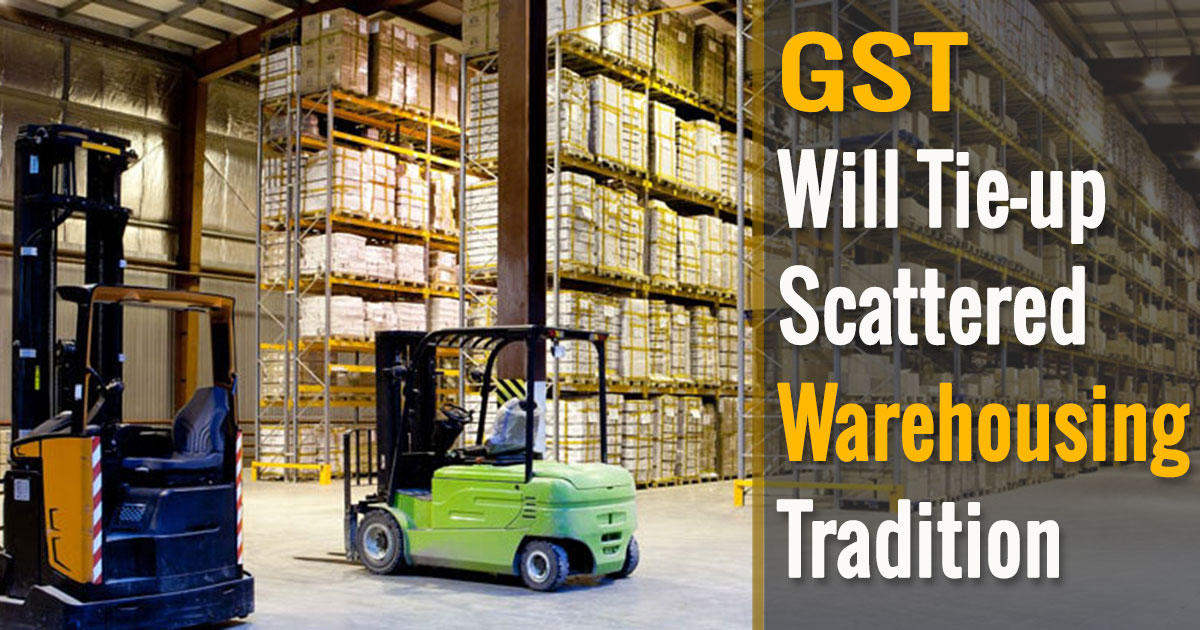
GST reform has been awaited for the next year and many folds of benefits are related to it, as by the research has given an indication. This time, GST is supposed to relax the warehousing parts of various companies owing big spaces in every state to reside their products. The reason behind every state agenda is to avoid the duplication of taxes while moving the goods.
The GST implication would be eradicating such conditions and would probably give the liberty to many firms for shrinking their warehousing space to a fewer location on the basis of strategy. Sectors like e-commerce firms, automotive companies, and manufacturers of consumer electronics, pharmaceuticals, and fast-moving consumer goods are watching out large space warehouse now as a result of GST which will allow them to send their goods to the states without paying again those taxes which was earlier having cascading effects.
Recommended: GST Impact on Logistics and Warehousing Sector
Pravin Shah, chief executive (automotive) of Mahindra & Mahindra, said in this matter that, “Instead of having warehouses in all the cities, we will look at a cluster of states where it will be easier to send goods across the country without having to make the customer wait”.
Indospace’s partner Brian Oravec also shared some light on this topic, “There will be a consolidation in this market with the passage of GST, as there will be more focus on setting up warehouses in the manufacturing hubs. This will lead to cost efficiency with reduced cost on transportation, labor and real estate.”
As the government has been creating the interstate industrial corridors such as the Delhi-Mumbai industrial corridor and freight corridors such as the western and eastern dedicated freight corridors, this initiative will definitely provide the warehousing issue to deliver different states the goods and cargo with easy procedure.
Balbirsingh Khalsa, national director (industrial services and landlord representation), Knight Frank, explained in simple terms of benefit that, “Further, with direct sale, companies’ inventory of goods will also reduce by nearly a third, as goods will move from manufacturing hubs to the distributors directly, instead of it being stocked. This will lead to efficiency in the supply chain and cost.”
Recommended: Goods and Services Tax Impact on Businesses in India